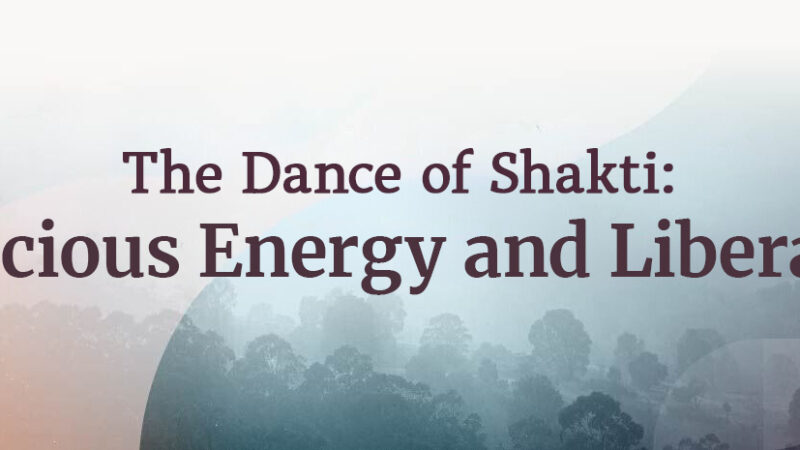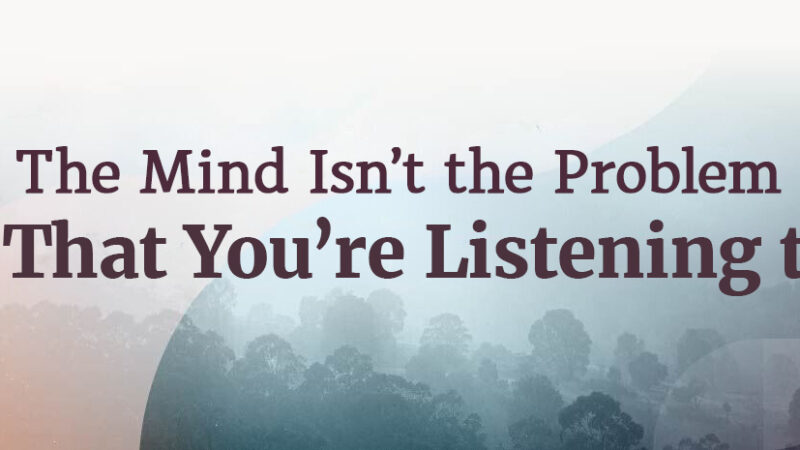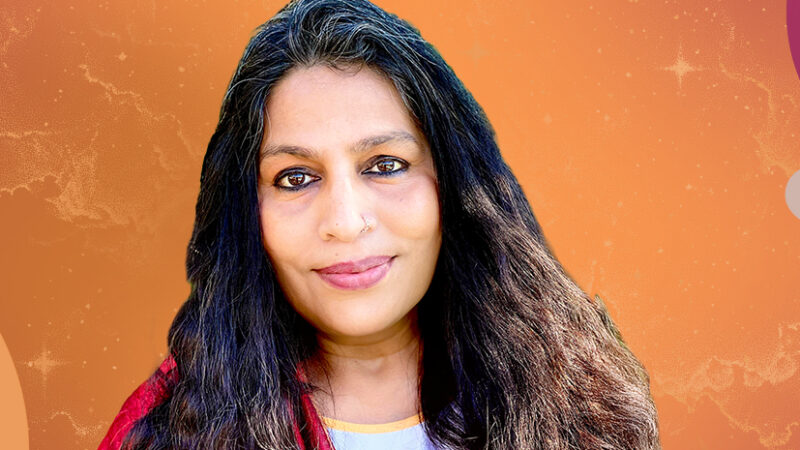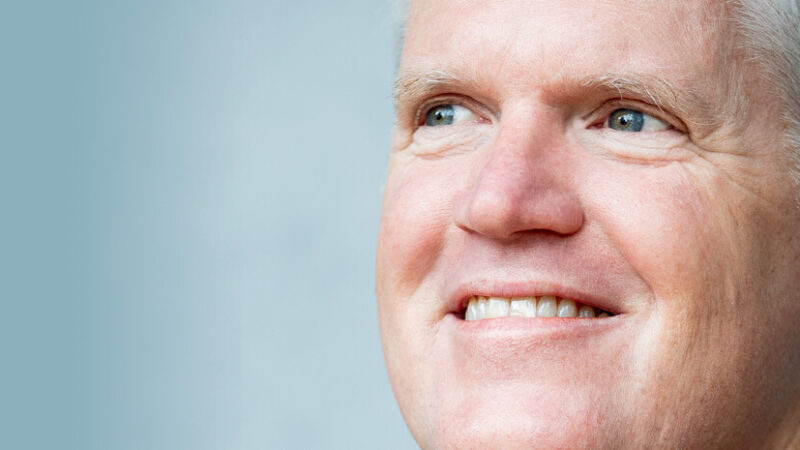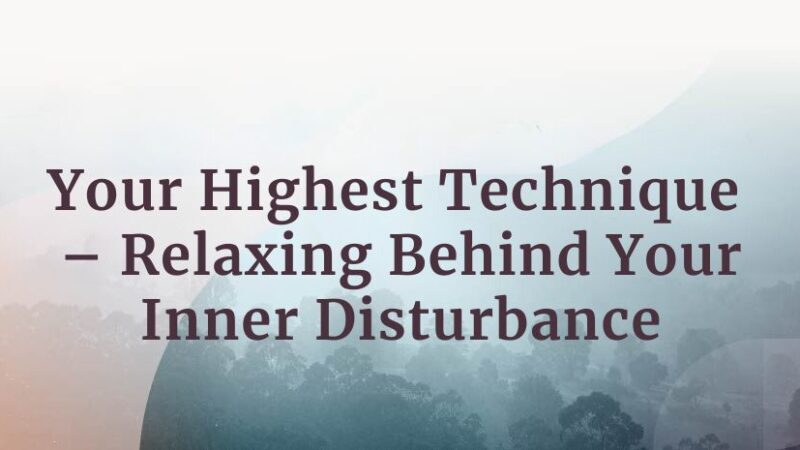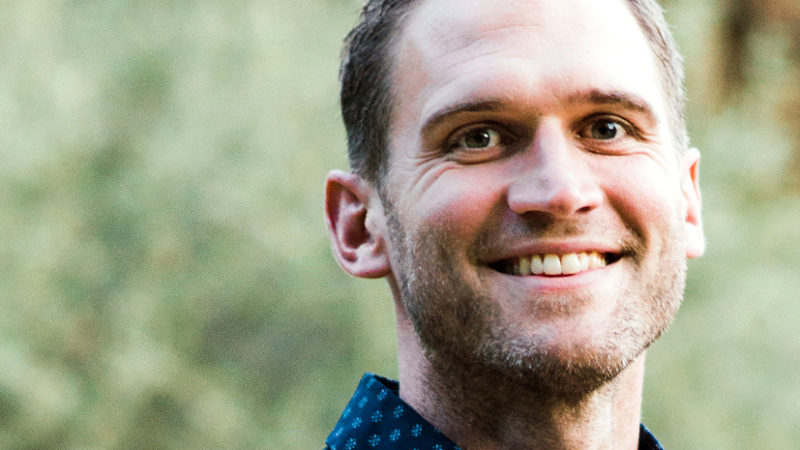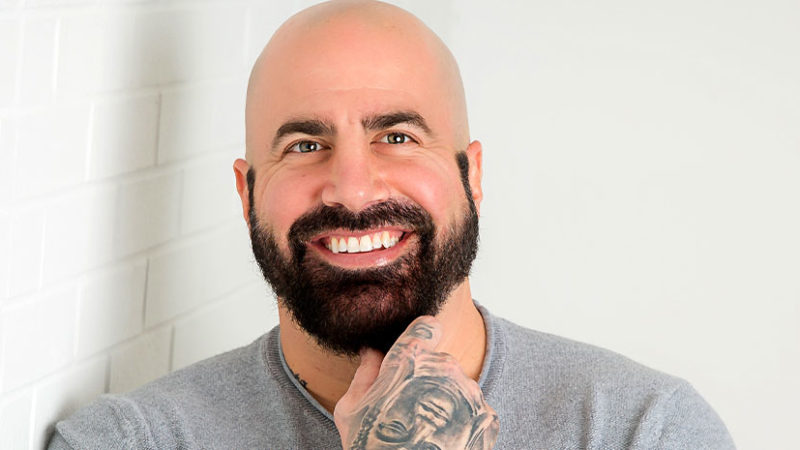-
E112: The Dance of Shakti: Conscious Energy and Liberation
Michael Singer — September 15, 2025
All of life is Shakti, the universal conscious energy that vibrates at different rates to manifest...
-
Acharya Shunya: The Five Phases of the Vedic Afterlife Journey | Part 2
Acharya Shunya — September 9, 2025
In the second half of Acharya Shunya's talk, she shares her personal journey from tradition to...
-
Honey Tasting Meditation: Build Your Relationship with Sweetness
There is a saying that goes “hurt people hurt people.” I believe this to be true. We have been...
Written by:
Amy Burtaine, Michelle Cassandra Johnson
-
Many Voices, One Journey
The Sounds True Blog
Insights, reflections, and practices from Sounds True teachers, authors, staff, and more. Have a look—to find some inspiration and wisdom for uplifting your day.
Standing Together, and Stepping Up
Written By:
Tami Simon -
The Michael Singer Podcast
Your Highest Intention: Self-Realization
Michael Singer discusses intention—"perhaps the deepest thing we can talk about"—and the path to self-realization.
This Week:
E111: The Mind Isn’t the Problem—It’s That You are Listening to It -
Many Voices, One Journey
The Sounds True Blog
Insights, reflections, and practices from Sounds True teachers, authors, staff, and more. Have a look—to find some inspiration and wisdom for uplifting your day.
Take Your Inner Child on Playdates
Written By:
Megan Sherer
600 Podcasts and Counting...
Subscribe to Insights at the Edge to hear all of Tami's interviews (transcripts available, too!), featuring Eckhart Tolle, Caroline Myss, Tara Brach, Jack Kornfield, Adyashanti, and many more.
Most Recent
E112: The Dance of Shakti: Conscious Energy and Libera...
All of life is Shakti, the universal conscious energy that vibrates at different rates to manifest as physical form, thoughts, emotions, and the flow of spiritual energy. Our suffering arises when we resist life’s experiences and block this flow, storing disturbances that shape the personal mind and distort our lives. Freedom comes when we stop pushing experiences down, let old disturbances rise and pass, and learn to relax in the face of life so that the inner flow of shakti can carry us back to our natural state of joy, openness, and oneness with God.
© Sounds True Inc. Episodes: © 2025 Michael A. Singer. All Rights Reserved.
E111: The Mind Isn’t the Problem—It’s That You a...
The deep spiritual teachings emphasize that the real problem is not the mind itself but our attachment to it and the impressions we’ve stored inside that distort our experience of life. We mistakenly look outward for solutions to this problem, when the real work is to release the inner disturbances that block the natural flow of energy and cause suffering. Spiritual liberation is found by turning inward, observing the mind, letting go of stored pain, and returning to the joyful, transcendent nature of consciousness itself.
© Sounds True Inc. Episodes: © 2025 Michael A. Singer. All Rights Reserved.
Acharya Shunya: The Five Phases of the Vedic Afterlife...
In the second half of Acharya Shunya’s talk, she shares her personal journey from tradition to transformation, offering practical tools and Vedic insights to help us embrace our greater purpose here.
Through her personal experiences, practical guidance, and teachings from her lineage, Acharya Shunya offers us a roadmap to awakening and living a more meaningful, empowered life.
Note: This interview originally aired on Sounds True One, where these special episodes of Insights at the Edge are available to watch live on video and with exclusive access to Q&As with our guests. Learn more at join.soundstrue.com.
Customer Favorites
W. Keith Campbell: The New Science of Narcissism
Dr. W. Keith Campbell is a social psychologist and professor in the Behavioral and Brain Sciences Program at the University of Georgia. Best known for his research and writing on narcissism, Dr. Campbell is the author of several books including The Handbook of Narcissism and Narcissistic Personality Disorder, When You Love a Man Who Loves Himself, The Narcissism Epidemic, and a new book with Sounds True, The New Science of Narcissism: Understanding One of the Greatest Psychological Challenges of Our Time―and What You Can Do About It. In this podcast, Sounds True founder Tami Simon speaks with Dr. Campbell about the latest scientific understanding of narcissism and its various forms, the spectrum of narcissism and Narcissistic Personality Disorder, the “big five” personality traits and the importance of balance, the malleability of our personalities and the possibility for change, and more.
Jennie Lee: Are You Listening to the Question Life Is ...
Jennie Lee is a recognized expert in the fields of yoga therapy and spiritual living. She has taught classical yoga and meditation for more than 20 years and coaches private clients in practices that integrate life spiritually, emotionally, mentally, and physically. With Sounds True, Jennie Lee has published the book Spark Change: 108 Provocative Questions for Spiritual Evolution, where she guides the reader through powerful question prompts designed to deepen your awareness of your innermost needs and initiate powerful shifts in your life. In this conversation with Sounds True founder Tami Simon, Jennie discusses the importance of knowing how to ask the right questions, rediscovering the art of introspection, assessing your own spiritual evolution, and much more.
S3 E1: Your Highest Technique – Relaxing Behind Your...
In this season opener, Michael Singer guides us into the understanding and practice of what he calls “the highest technique,” that of relaxing in the midst of your resistance to life’s events—and then fully experiencing the present moment.
For more information, go to michaelsingerpodcast.com.
© Sounds True Inc. Episodes: © 2024 Michael A. Singer. All Rights Reserved.
Timeless Classics
Lance Allred: The New Alpha Male
Lance Allred is a former NBA player (who was the first legally deaf player in the league), public speaker, and author. With Sounds True, he has published The New Alpha Male: How to Win the Game When the Rules Are Changing. In this episode of Insights at the Edge, Tami Simon speaks with Lance about the experiences he had in professional sports that led him to reevaluate what it means to be a man in contemporary society. Lance explains how his upbringing in a rural, polygamous commune informed his original ideas about masculinity, highlighting the subconscious assumptions about money and power that affect American men’s self-worth. Tami and Lance also discuss the roles of emotional vulnerability and surrender in the lives of modern men. Finally, they talk about the principle of perseverance and the increasingly urgent need for all cultures to reexamine their assumptions and core values.(63 minutes)
Micah Mortali: Rewilding
Micah Mortali is the director of the Kripalu School, a certified yoga teacher, and a longtime wilderness guide. With Sounds True, he has published Rewilding: Meditations, Practices, and Skills for Awakening in Nature. In this episode of Insights at the Edge, Tami Simon speaks with Micah about humanity’s growing disconnection from the earth and how “rewilding” can help slow that trend. They talk about rewilding both as individuals and as part of whole ecosystems. Micah also shares the story of an intense, revelatory trail encounter with a bear and comments on the “species loneliness” of urban environments. Mulling the sense of grief they have for humankind’s effects on the environment, Tami and Micah consider how modern people can grapple with being in exile from the natural world. Finally, they discuss the barriers many have to reentering nature, as well as ways to initiate your own rewilding experience no matter where you are.(64 minutes)
Christian Conte: Healing Conflict: Listen, Validate, a...
Christian Conte, PhD, is a mental health specialist and leading authority on anger management. With Sounds True, Christian has published Walking Through Anger: A New Design for Confronting Conflict in an Emotionally Charged World. In this episode of Insights at the Edge, Tami Simon talks with Christian about his Yield Theory of emotional management, focusing on the process of “listen, validate, explore options.” Christian explains the events that led to his interest in anger management, as well as the origins of Yield Theory. He emphasizes the importance of meeting others where they are, giving them the opportunity to drain anger’s charge from their limbic system. Christian and Tami discuss why it’s necessary to cultivate humility and how Yield Theory might be applied to our currently divisive culture. Finally, they speak on “the cartoon world” that angry responses often create, as well as the importance of watching what we add to our minds.(63 minutes)
